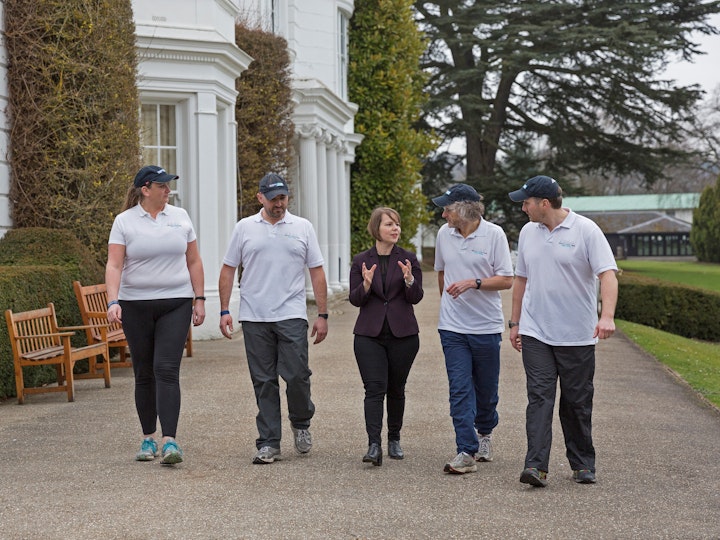Heads Together and Row: Team resilience in extreme environments

While competing in the Talisker Whisky Atlantic Challenge, Heads Together and Row are the focus of academic research by Henley Business School into individual and team resilience. In this blog post Dr Caroline Rook, who is leading the study, reflects on the core challenges of completing an ocean rowing race.
"We are excited and petrified. We are buzzing, we are ready to go. We are not thinking about anything else." That was the response the team gave an hour before departure on race day, Wednesday 12 December.
They will row for more or less 50 days across the Atlantic, encountering all sorts of physical challenges while manoeuvring their rowing boat across the sea. Right from the start, they said: "We had a look at the forecasts. We are looking at three-metre waves from the off this afternoon. That's scary!" But the main challenge will lie in staying strong together as a team when facing these hurdles!
I am excited to have been able to support the team in their psychological and physical training leading up to the race, to build up their psychological and physical resilience. Now, I am even more excited to find out how their resilience will develop during this challenging event, based on their experiences out there.
So what are they are likely to experience now they are on the boat? Their ability to function as a team will really be tested! As one crew member admitted just before departure: "We've had 100 points of tension over the last 10 days. We had a lot to do...But we are doing really, really well as a group."
The demands put on the team dealing with the forces of nature on the open ocean will in turn put high demands on core individual and team psychological mechanisms. Several aspects of their team interaction may be compromised as they face uncertainty and uncharted territory. As one crew member admitted just before the race started: "I am not a professional rower. Will I really be able to do this?" The close proximity to each other on the boat and the anxiety created by dealing, for example, with large waves will create stress; and stress can be distracting! Research has shown that acute stress leads to deficiencies in mental accuracy and information processing - it becomes harder to make the right decisions! Furthermore, stress often leads to a loss of team perspective and team members may tend to communicate less.
So what will the team need to focus on so that the psychological pressures don’t derail their mission?
First, they need to share responsibility. Research on teams and organisations has shown that small and large groups alike respond to stress by centralising authority. The crew members, through their training, are keenly aware of this already. Before they set off, they said: "We are relying on each other and we are trying to do our best to play our part so that the skipper does not get physically and mentally worn out."
Second, the team may also experience dramatic restructuring in a period of extreme instability. Different team members might step up as leaders at different times during the race. This adaptability is really driven by the complexity in which the team is operating. The team might have to adjust strategies (for example, different members taking on new roles) and activities (for example, learning new things) in response to constantly changing conditions. So adaptability will be key! In circumstances where the team will experience high demands and ambiguity, great flexibility is required to build on the strengths and expertise of each crew member.
As the team said, just before take-off: "We are supporting each other. That is what matters."
You can watch a short video of Caroline below.
You might also like
FT European Business Schools Ranking 2021
Portugal’s Government-backed 4 day week trial results show drops in anxiety and fatigue, and improved work-life balance
Henley apprenticeship programme excels in NSS 2024
This site uses cookies to improve your user experience. By using this site you agree to these cookies being set. You can read more about what cookies we use here. If you do not wish to accept cookies from this site please either disable cookies or refrain from using the site.